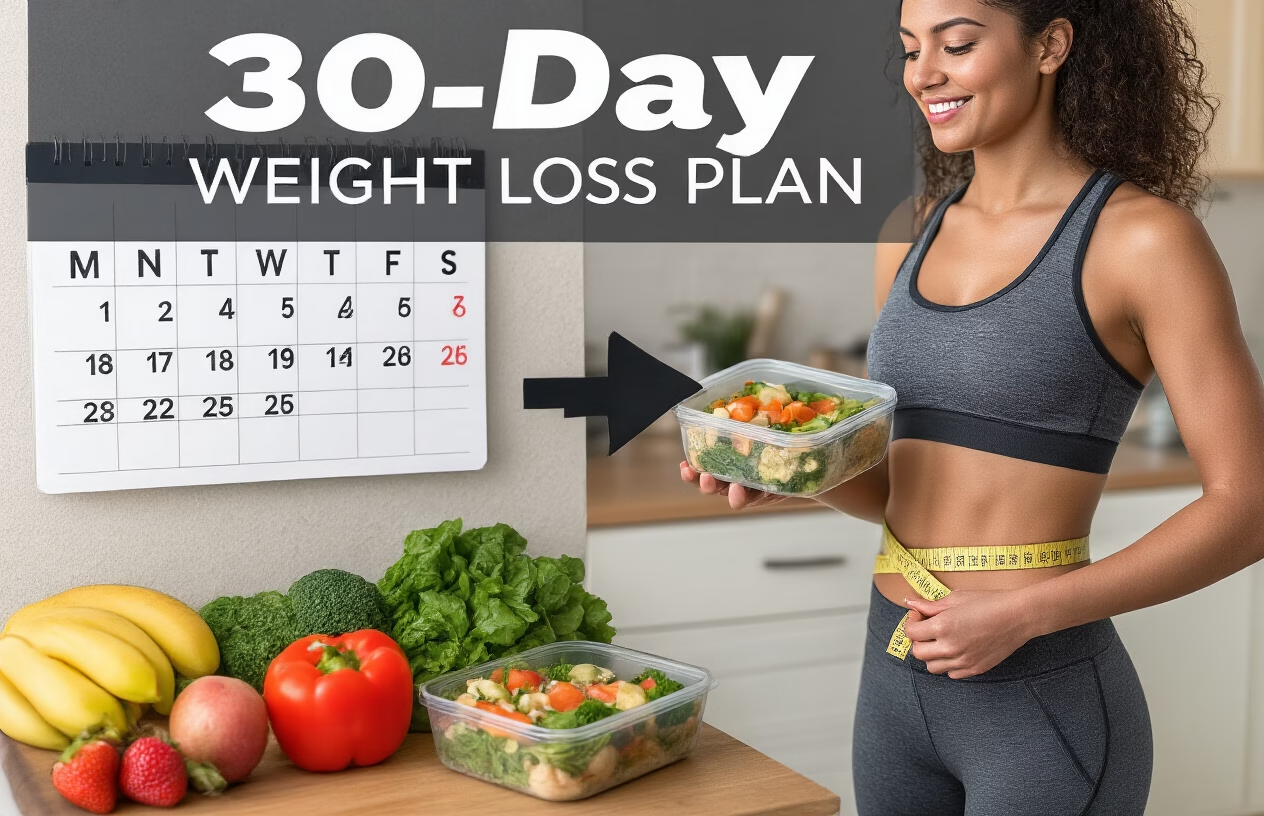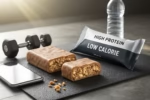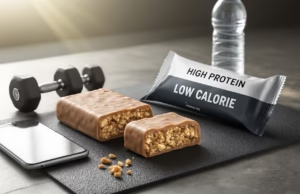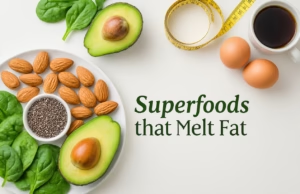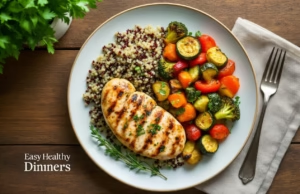Ever looked at those “before and after” weight loss photos and thought, “Yeah right, that’s impossible”? I get it. The internet is packed with miracle diets promising the world but delivering zilch.
But what if I told you dropping 10kg in 30 days isn’t just clickbait fantasy? This 1 month diet plan for weight loss actually works—when you follow it correctly.
I’m not here to sell you on drinking celery juice or eating nothing but cabbage (ugh). I’m talking science-backed, sustainable strategies that real people have used to transform their bodies.
The secret isn’t found in some exotic supplement or torturous workout. It’s actually much simpler, and I bet it’s not what you’re expecting.
Subscribe for good and useful information.
The Science Behind Rapid Weight Loss

How your body burns fat
Your body transforms stored fat into usable energy through a process called lipolysis. When you consume fewer calories than you burn, your body taps into fat reserves, breaking them down into fatty acids that fuel your muscles and organs. This metabolic pathway accelerates during exercise, especially high-intensity workouts that keep your heart pumping.
Metabolic changes during calorie restriction
When you suddenly cut calories, your metabolism adapts. Initially, you’ll experience rapid weight loss as your body depletes glycogen stores and water weight. After this phase, your metabolism might slow slightly as your body tries to conserve energy. This is why combining diet with exercise is crucial—it preserves muscle mass and keeps your metabolic rate higher.
Setting realistic expectations for 30-day results
Can you drop 10kg in a month? Maybe, but it’s ambitious. Most health experts recommend 1-2kg weekly loss for sustainability. Rapid results often come with rapid rebounds. Focus on building habits that stick beyond the 30 days. The most successful weight loss journeys balance ambition with patience. Your body will thank you for the gradual approach.
Preparing for Your 30-Day Journey

Essential kitchen tools and ingredients
Getting ready for your weight loss journey means stocking up right. Grab a food scale, meal prep containers, and a good blender. Your pantry needs lean proteins, whole grains, and plenty of fresh produce. Don’t forget herbs and spices – they’ll make healthy eating exciting without adding calories.
Grocery shopping list for success
Your shopping cart is your first line of defense against weight gain. Focus on perimeter shopping where fresh foods live. Must-haves: skinless chicken, eggs, Greek yogurt, leafy greens, berries, sweet potatoes, quinoa, and healthy fats like avocados and olive oil. Skip the processed food aisles entirely.
Meal prep strategies to save time
Sunday prep sessions will save your diet when life gets crazy. Batch cook proteins and grains, chop veggies, and portion snacks into grab-and-go containers. Prep overnight oats for breakfasts and salad jars for lunches. Freeze extra portions of healthy meals for those nights when cooking feels impossible.
Week 1: Kickstarting Your Metabolism

Week 1: Kickstarting Your Metabolism
A. Detox meals to reset your system
Ready to jumpstart your weight loss journey? Week 1 is all about hitting the reset button. Ditch the processed junk and focus on detox-friendly foods like leafy greens, lemon water, and fiber-rich fruits. Your body will thank you as toxins flush out and your metabolism fires up!
B. Portion control fundamentals
Forget crazy restrictions—portion control is your secret weapon. Use your palm for protein, fist for carbs, and thumb for fats. This simple hand-guide keeps portions in check without measuring cups. The right amounts make all the difference when dropping those first kilos.
C. Water intake guidelines
Drink up! Your new best friend is H2O—aim for 3 liters daily. Water kicks your metabolism into high gear, flushes toxins, and kills fake hunger. Keep a bottle handy and sip throughout the day. Add lemon or cucumber if plain water bores you. Your skin will glow as the pounds melt away.
D. First week meal plan with recipes
Breakfast: Veggie omelet with spinach and tomatoes or overnight chia pudding with berries
Lunch: Quinoa bowl with grilled chicken and mixed vegetables
Dinner: Baked fish with steamed broccoli and small sweet potato
Snacks: Apple with almond butter or Greek yogurt with cinnamon
E. Expected results after 7 days
Most people drop 2-3kg this first week! Some is water weight, but that’s okay—it’s progress! You’ll notice less bloating, higher energy levels, and clothes fitting better. This quick win builds motivation for the journey ahead. Remember, this is just the beginning!
Week 2: Accelerating Fat Loss

Introducing intermittent fasting
Week 2 is where the magic happens! You’ll start limiting your eating window to 8 hours daily (try 12pm-8pm). This gives your body 16 hours to burn fat stores instead of processing new food. Many find this approach naturally reduces calorie intake while boosting metabolism. Plus, it’s flexible—you can adjust the window to fit your schedule.
Protein-focused meal options
Protein is your best friend now. Fill your plate with:
- Grilled chicken breast with roasted vegetables
- Greek yogurt with nuts and berries
- Tuna salad with olive oil dressing
- Lentil soup with leafy greens
- Tofu stir-fry with broccoli and bell peppers
These options keep you fuller longer and preserve muscle while shedding fat.
Dealing with cravings and hunger
Cravings hit everyone—it’s normal! When they strike, try:
- Drinking water first (thirst often masquerades as hunger)
- Herbal tea with cinnamon
- A small handful of nuts
- Going for a quick walk
- Brushing your teeth (works surprisingly well!)
Remember, hunger comes in waves. If you can ride it out for 15 minutes, it usually passes.
Week 2 detailed meal plan
| Meal | Monday | Tuesday | Wednesday | Thursday | Friday |
|---|---|---|---|---|---|
| Lunch (12pm) | Grilled salmon with asparagus | Turkey wrap with avocado | Chicken Caesar salad | Vegetable omelette | Quinoa bowl with chickpeas |
| Snack (3pm) | Apple with almond butter | Greek yogurt | Cucumber with hummus | Protein smoothie | Celery with peanut butter |
| Dinner (7pm) | Stir-fried tofu with vegetables | Baked chicken with sweet potato | Lentil soup | Grilled fish with steamed greens | Turkey meatballs with zucchini noodles |
Week 3: Breaking Through Plateaus

Week 3: Breaking Through Plateaus
A. Adjusting macros for continued results
Hit a plateau? Time to shake things up! Your body’s getting smart, so we need to outsmart it. Bump up your protein by 10%, cut carbs slightly, and watch what happens. Some people thrive with more fat, others need more protein. Track everything this week and tweak according to your results.
B. Strategic carb cycling techniques
Carb cycling is your secret weapon now. High carbs (100-150g) on workout days, low carbs (50g) on rest days. This tricks your body into burning fat while maintaining muscle. Your metabolism stays fired up instead of thinking you’re starving. Monday and Thursday: go higher carb. The other days: keep it low.
C. Metabolism-boosting food combinations
Pair these foods for metabolic magic: protein with spicy peppers (hello, chicken fajitas!), green tea with citrus, cinnamon with oatmeal. The right combos can boost calorie burn by 10%. Coffee before workouts + protein after = fat-burning dream team. Try Greek yogurt with berries and cinnamon for a triple metabolic boost.
D. Complete week 3 meal schedule
Monday (High Carb)
- Breakfast: Oatmeal with banana, cinnamon
- Lunch: Sweet potato, grilled chicken, mixed greens
- Dinner: Brown rice, salmon, roasted vegetables
- Snacks: Apple with almond butter, Greek yogurt
Tuesday-Wednesday (Low Carb)
- Breakfast: Egg white omelet with vegetables
- Lunch: Large salad with tuna, olive oil dressing
- Dinner: Zucchini noodles with turkey meatballs
- Snacks: Celery with peanut butter, cheese stick
Week 4: Maximizing Results

A. Final push meal strategies
This is it! Your last week demands ultimate focus. Cut refined carbs completely, increase protein to preserve muscle, and try intermittent fasting with an 8-hour eating window. Stay hydrated with 3-4 liters of water daily to flush toxins and reduce water retention. You’re almost there!
B. Nutrient timing for enhanced fat loss
Timing matters now more than ever. Consume protein within 30 minutes of waking up to jumpstart metabolism. Place carbs primarily around workouts when your body uses them efficiently. Save your lowest-calorie meals for evenings and avoid eating after 7pm when digestion slows down.
C. Week 4 comprehensive meal plan
Breakfast: Protein smoothie (spinach, berries, protein powder)
Mid-morning: 10 almonds, green tea
Lunch: Grilled fish, large salad with olive oil
Snack: Greek yogurt with cinnamon
Dinner: Lean protein with steamed vegetables
Daily water: 3-4 liters
Supporting Your Diet With Proper Exercise

Fat-burning workout routines
Pair your diet with HIIT workouts that torch calories even after you’re done. Try 20-minute sessions of burpees, mountain climbers, and jumping jacks. These workouts boost metabolism while preserving muscle—exactly what you need when cutting calories.
Exercise timing for maximum results
Working out before breakfast taps into fat stores faster since your glycogen levels are lower. But consistency matters more than timing. Find what fits your schedule and stick with it. Morning exercisers tend to skip fewer workouts overall.
Rest and recovery importance
Your body transforms during rest, not during workouts. Schedule at least two recovery days weekly, focusing on sleep quality and gentle stretching. Overtraining can spike stress hormones, making your body cling to fat despite your diet efforts.
Maintaining Results After The 30 Days

A. Transition to sustainable eating
Ever finished a diet only to regain everything? That’s because crash diets don’t work long-term. After your 30 days, gradually increase calories by adding more lean protein and healthy fats. Keep portion control habits but loosen restrictions slightly. Your body needs time to adjust to new patterns without shocking your metabolism.
B. Preventing weight rebound
The dreaded bounce-back happens when you rush back to old habits. Monitor your weight weekly, not daily. Small fluctuations are normal! Maintain your hydration habits and protein intake. The secret? Allow yourself occasional treats rather than complete restriction, which only triggers binge episodes later. Balance is your new best friend.
C. Long-term lifestyle adjustments
This 30-day plan wasn’t just about weight loss—it was training for your lifestyle upgrade. Continue meal prepping and planning ahead for busy days. Stay active with exercises you actually enjoy, not ones you dread. Connect with like-minded people who support your new habits. Remember: consistency beats perfection every single time.
Conclusion: 1 Month Diet Plan for Weight Loss

Shedding 10kg in 30 days requires dedication to both nutrition and lifestyle changes. This comprehensive diet plan takes you through a strategic four-week journey—starting with metabolism activation, moving to accelerated fat burning, breaking through inevitable plateaus, and finally maximizing your results in the final week. When combined with the appropriate exercise regimen, these strategies create a powerful framework for significant weight loss.
Remember that while rapid weight loss is possible, maintaining your results is equally important. Once you’ve completed the 30-day plan, focus on incorporating sustainable eating habits and regular physical activity into your daily routine. By transforming this temporary diet into a long-term lifestyle, you’ll not only keep the weight off but continue enjoying the increased energy and confidence that comes with your healthier body. Ready to transform your body in just one month? Start your journey today!
#1 Month Diet Plan for Weight Loss #Indian diet plan #Lose 10 kgs #Food choices #Healthy eating #1 Month Diet Plan for Weight Loss #Indian diet plan #Lose 10 kgs #Food choices #Healthy eating #1 Month Diet Plan for Weight Loss #Indian diet plan #Lose 10 kgs #Food choices #Healthy eating #1 Month Diet Plan for Weight Loss #1 Month Diet Plan for Weight Loss
Follow Us On:
